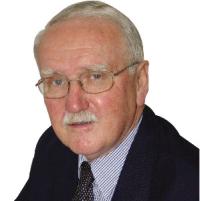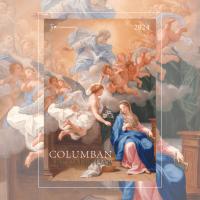 At their latest meeting in May, the Australian Bishops decided that the first meeting of Plenary Council 2020 will be held in Adelaide from October 4 - 10. It will be an exciting new event for the Australian church. The last Plenary Council was held in Sydney over 80 years ago and was made up entirely of bishops and priests. This time at least one third of the delegates will be lay people. It will also have world significance as Australia will be the first country to hold a Plenary Council with an open agenda. It will be watched by Churches all around the world.
At their latest meeting in May, the Australian Bishops decided that the first meeting of Plenary Council 2020 will be held in Adelaide from October 4 - 10. It will be an exciting new event for the Australian church. The last Plenary Council was held in Sydney over 80 years ago and was made up entirely of bishops and priests. This time at least one third of the delegates will be lay people. It will also have world significance as Australia will be the first country to hold a Plenary Council with an open agenda. It will be watched by Churches all around the world.
In a way, our Plenary Council will seem new but it will not be something completely novel. Ever since the Council of Jerusalem [Acts 15] most decisions of substance rested in the hands of councils or synods. The Council of Trent prescribed bishops hold annual synods and metropolitans one every three years. St Charles Borromeo effected his renewal of the church largely through synods. It was only with Vatican I and the definition of primacy and infallibility that synods lost their urgency and vitality. Power was centred in one man and this centralised authority and decision-making right down through the Church’s structures. But, historically, Church governance was synodal. Even the 1917 Code of Canon Law legislated for bishops to hold a synod every ten years in their diocese.
Although synods and councils were principally meetings of bishops, laity often played a significant role. The major change came at Vatican II. For the Fathers at Vatican II the primary sacrament was baptism and all the baptised share in Christ’s prophetic, priestly and kingly offices. The council recommended that the church should be more participatory in its processes, involving all the baptised in the church. The Fathers taught that the whole church has been given the gift of divine revelation, as well as the gift to interpret it faithfully. The bishops have a ministry of teaching that necessarily involves a process of listening to the voices of the faithful before they speak because they do not have exclusive access to the Spirit.
On May 3, the International Theological Commission, with the approval of Pope Francis, published a document, Synodality in the Life and Mission of the Church. It insists that the voices of ordinary Catholics are an “indispensable” part of Church governance and even recommends that canon law should be updated to make it compulsory for parishes to have councils that consult the laity.
“A synodal church is a participatory and co-responsible Church.” "The participation of lay faithful is essential," it later states. "They are the immense majority of the People of God and we have much to learn from their participation in diverse expressions of life."
"Their consultation is indispensable in getting started processes of discernment in the frameworks of synodal structures," it continues. "We must, therefore, overcome the obstacles represented by lack of formation and of recognised spaces in which the faithful laity can express themselves and act." Because we have spent decades waiting for Rome to speak we, bishops, priests and laity, do need formation in how to speak up and to listen to one another and we do need structures, councils and “recognised spaces” to express ourselves.
The Plenary Council 2020 will provide us with the space and the formation to become a truly synodal Church. Becoming synodal can only be learnt in doing. In the next three years we are called upon to dialogue, listen and “journey together” as we try “to listen to what the Spirit is saying to the churches”. This was the instruction given to the seven churches of Asia Minor in the Book of Revelation. From that time on Christians have met to listen to the Spirit at times of important decisions. We are called to do so again and in this, we will be reliving and renewing a time honoured Christian tradition.
Columban Fr Noel Connolly is a member of the Adult Formation Team with Catholic Mission Australia and is a member of the Facilitation Team for the Plenary Council 2020.
Related links
- Read more from the current Columban eBulletin

